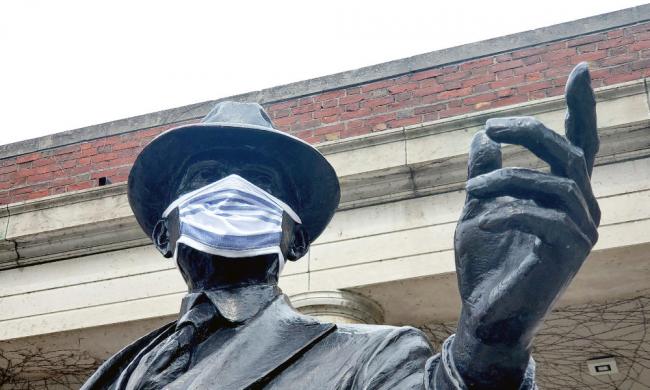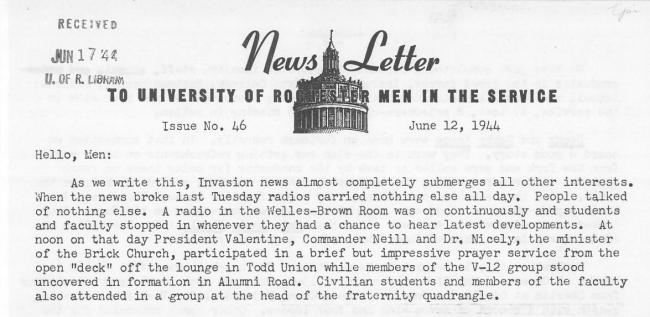
How are you holding up? The question is both a thoughtful check-in (hopefully you’re well) and a painful reminder of the shared nightmare that is COVID-19 (sorry). It’s also become part of what some people say is our “new normal.” Hollywood couple Emily V. Gordon and Kumail Nanjiani are not among those people.
In an episode of their pandemic-born podcast “Staying In with Emily and Kumail,” Gordon and Nanjiani point out that none of this is normal nor is it permanent. It’s just an overall weird time in our lives. Feeling that way led them to refer to life under the novel coronavirus as “The Weirds.” Here are a couple of examples of how it would be used in a sentence:
A day in The Weirds feels like seven.
Ever since we entered The Weirds, I’ve simultaneously felt scared, sad, anxious, and lonely.
By any name, the COVID-19 outbreak has turned our world upside down and is poised to have long-lasting effects on how we live our lives. How the University of Rochester community behaves in The Weirds (it’s a good term!)—including how we respond to the evolution of the outbreak, what we are thinking, and what we are doing day-to-day—provides today’s and tomorrow’s researchers with valuable insight.
The Department of Rare Books, Special Collections, and Preservation (RBSCP) has initiated a University community-driven project that will help the University Archives preserve this time in our history. Students, staff, faculty, alumni, parents, and friends of the University are being asked to submit photographs, journal entries, and other materials that document personal reflections on topics such as:
- the shift to online education
- changes in your housing or work situation
- how you’re affected by social distancing and the stay at home orders
- daily life challenges
Although the coronavirus is an unprecedented event in Rochester's history, it is not the first time a global event has touched our community. World War II had a profound impact on the University's daily routines and its people. Today, one of the ways we are able to see what life was like during that time is through issues of the Newsletter to University of Rochester Men in the Service. Melissa Mead, the John M. and Barbara Keil University Archivist and Rochester Collections Librarian, says issues, sent all over the world by then alumni secretary Charles Dalton ’20, ’43 (MA), can seem relentlessly cheerful.

“Dalton reports on football games, fraternities, and visits from enlisted alums home on leave,” says Mead. “But he also reported deaths, and how events like D-Day were experienced by those at home. He was relaying news from letters sent to him by enlisted alumni and students, and those original letters are also preserved in the University Archives.”
Mead notes that while the recipients of the newsletters may not have been able to preserve them for posterity, a full set of the issues, and the correspondence Dalton was quoting from in his newsletters, are all part of the archives.
Everything RBSCP collects will provide future generations with a window into life during the COVID-19 outbreak. How large and clear that window is will depend on what the University community shares.
Interested in contributing to the Archiving Our COVID-19 Stories project? Fill out this brief submission form. If you have questions, contact Melissa Mead at archives@library.rochester.edu. Enjoy reading about the University of Rochester Libraries? Subscribe to Tower Talk.

